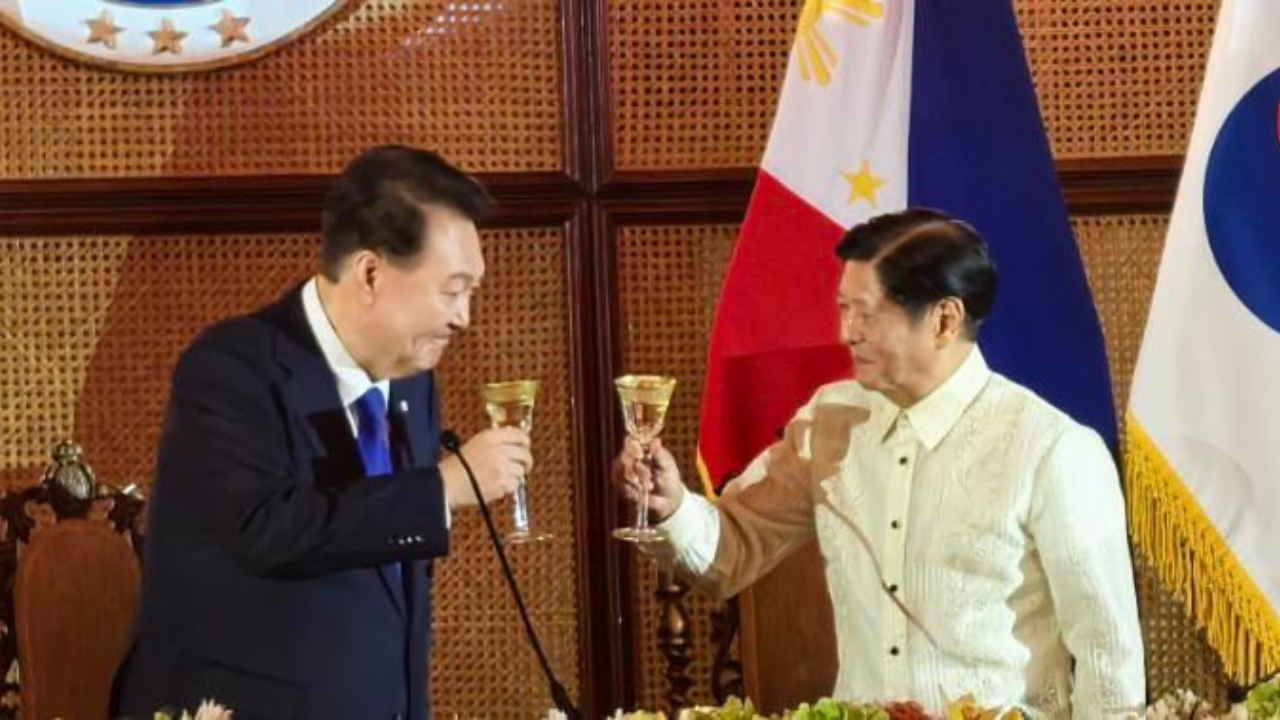
Philippine President Ferdinand “Bongbong” Marcos Jr. and South Korean President Yoon Suk Yeol. RTVM
MANILA, Philippines — President Ferdinand “Bongbong” Marcos Jr. and South Korean President Yoon Suk Yeol on Monday signed several agreements, including a maritime cooperation deal between the Philippine Coast Guard (PCG) and the Korea Coast Guard (KCG).
In his speech during the joint presentation of the agreements signed, Marcos said the signed memoranda of understanding (MOUs) will “propel the momentum” of the “strategic partnership” between Philippines and South Korea “in the decades to come.”
The key agreements signed were the following:
- MOU between between PCG and KCG on maritime cooperation
- MOU on the Economic Innovation Partnership Program (EIPP)
- MOU for Strategic Cooperation on Critical Raw Material Supply Chains
- MOU on the feasibility study for Bataan Nuclear Power Plant (BNPP)
- Loan Agreement on Samar Coastal Road II Project and the Memorandum of Understanding on the Laguna Lakeshore Road Network Project Phase I (Stage I) and the Panay-Guimaras-Negros Island Bridges Project.
- Implementation Program of the Memorandum of Understanding between the Department of Tourism and the Ministry of Culture, Sports, and Tourism of the Republic of Korea for 2024 to 2029.
On the MOU signed between PCG and KCG, Marcos said the partnership will “strengthen” the protection of the two nation’s mutual maritime interests.
READ: Marcos pushes for rules-based int’l order in talks with S. Korea’s Yoon
“To strengthen understanding, mutual trust and confidence and for the purpose of promotion, preservation and protection of our mutual maritime interest including maritime order and safety in the Asia-Pacific region, we have signed a MOU between the [PCG] and [KCG] on maritime cooperation,” said Marcos.
The MOU on EIPP, meanwhile, will establish a “framework” for a cooperation between the Philippines and South Korea “for the advancement of national regional and urban development in the Philippines.”
Marcos also said the signed agreement on the Strategic Cooperation on Critical Raw Material Supply Chains will promote cooperation and establishment of supply-chains and critical raw materials in the Philippines and South Korea.
READ: South Korean President Yoon Suk Yeol arrives in Malacañang
The feasibility study on the BNPP, on the other hand, will allow the country to progress in envisioning the nuclear plant as a potential source of energy, according to Marcos.
“This will carry out a thorough feasibility study to continue progress on the BNPP which we envision to contribute to energy security in the country,” Marcos said.
Marcos also expressed hope for the continued promotion of bilateral tourism cooperation between the Philippines and South Korea upon the signing of the implementation program of the MOU between the Department of Tourism and Korea’s Ministry of Culture, Sports and Tourism.

